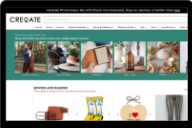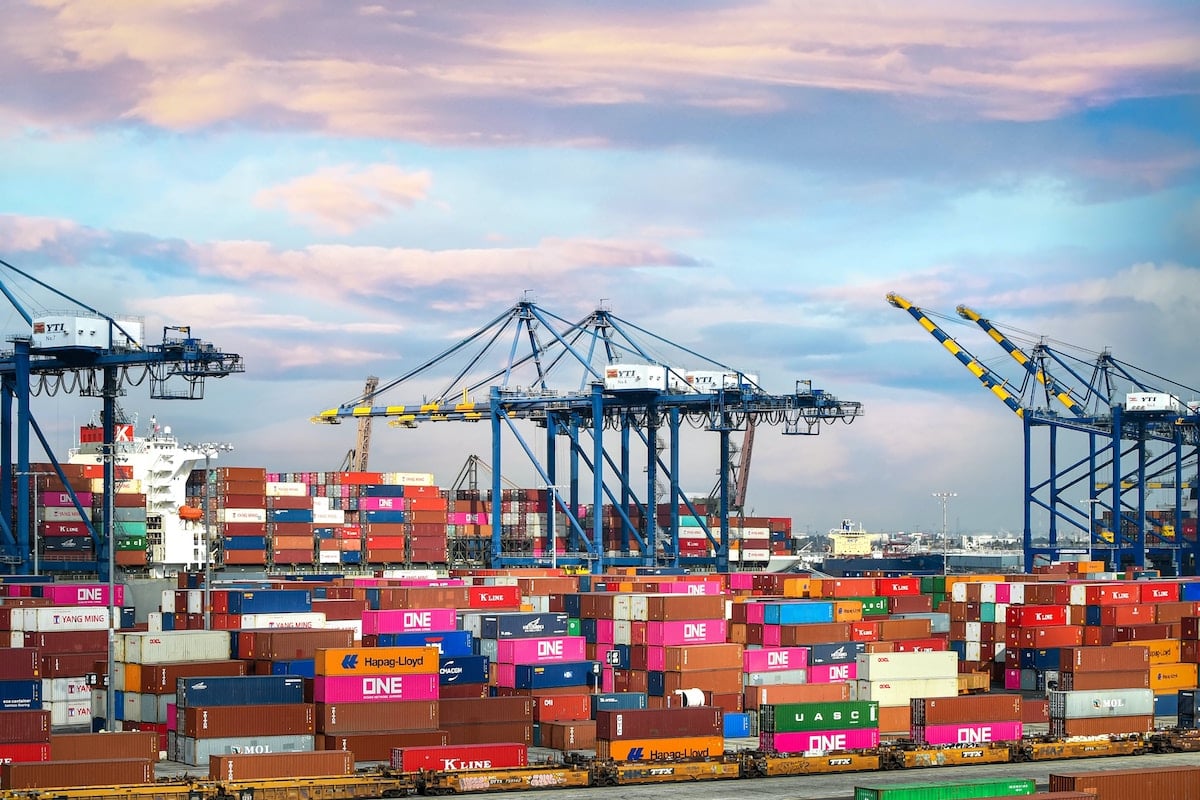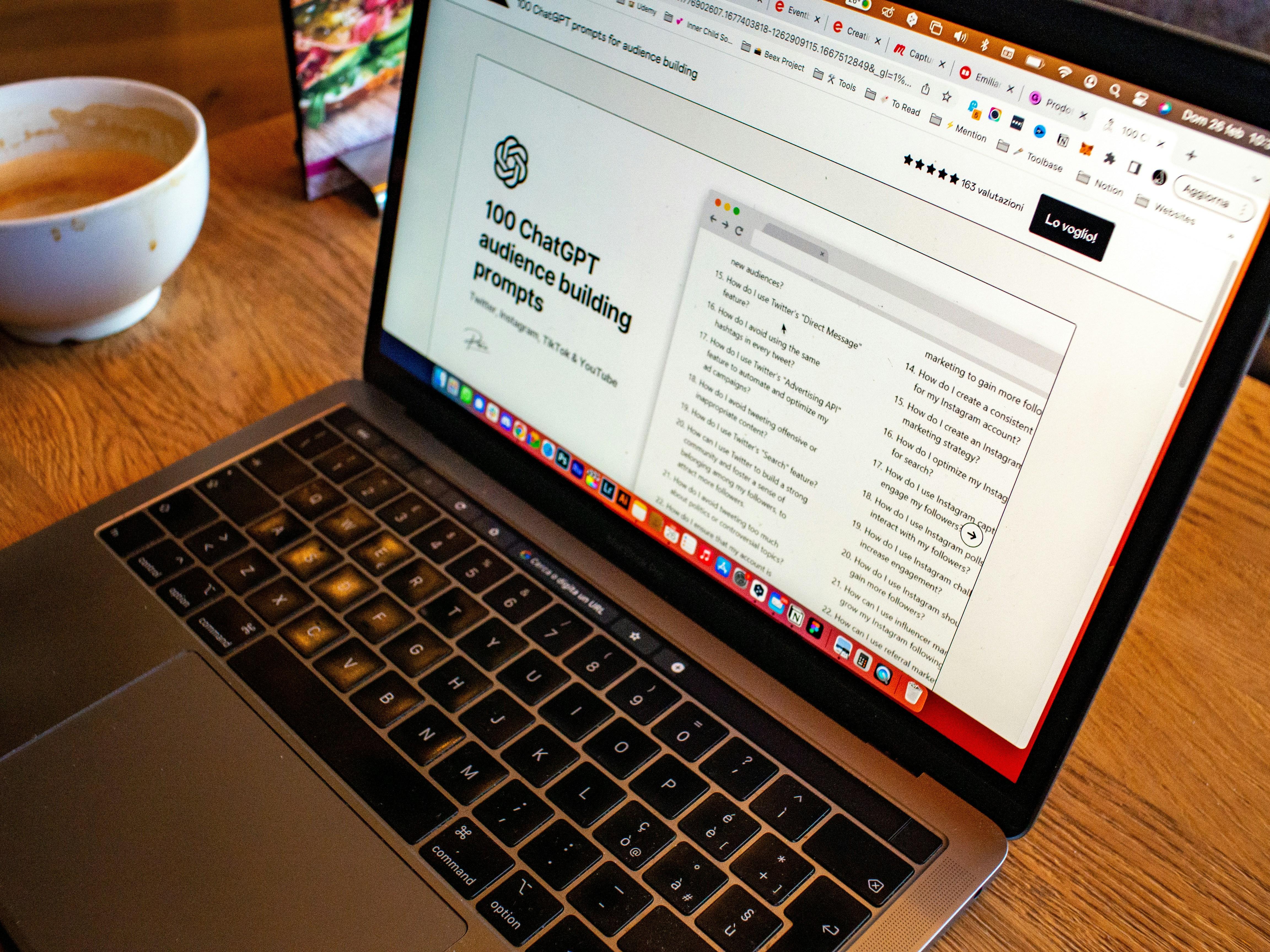
So you’ve got a product idea. Like many entrepreneurs before you, you may be wondering how on earth to make this a reality.
Your process may have included some brainstorming, countless discussions, perhaps even some research. But the process of developing, and then bringing a product to market can be a daunting task.
So, what better way to begin learning how to manufacture a product than by breaking down the process into digestible steps. Let us walk you through what these might look like to help you get started.
On this page
- What kind of product do you want to create?
- What is a manufacturer?
- Choosing between domestic & overseas manufacturers
- Overseas manufacturers Pros & Cons
- Domestic manufacturers Pros & Cons
- Knowing your suppliers from your manufacturers
- How to find a manufacturer for your product
- Search engines
- Online manufacturer directories
- Domestic Manufacturer Directories (UK)
- Overseas Manufacturer Directories
- Social media, networking, and forums
- Confirming manufacturer quality
- Reviews are your friend
- Approaching manufacturers
- Placing your order
- No product sample? No order
- When requesting a quote, cover the basics
- Pricing and profit
What kind of product do you want to create?
Let it be said: transitioning from idea to product isn’t a quick process. However, if you already have a clear idea of what kind of product you want to sell, you’re off to a great start. Potential manufacturers need to understand what it is exactly you’re looking for, and to do so, they need a fully formed idea.
This means detailed information about what your product is, how you want it to look, and how it will function. This should include research into materials, colours etc, as well as product blueprints, and perhaps even a dummy model or prototype. To break that down, among the key info you’ll need to provide is:
- Functionality
- Materials
- Dimensions
Not sure where to start on the specifics? Consider working with a product engineer or designer to help you get a feel for the substance of your product. Ensuring you have done your due diligence and have all the information needed about your product should save you time and money when it comes to beginning the manufacturing process.
What is a manufacturer?
A manufacturer is a person or company that makes commercial goods from raw materials. These goods are then sold to retailers, wholesalers, drop-shippers and distributors.
Most manufacturers will specialise in specific products or materials, and will know how to manufacture products for certain industries. This is worth bearing in mind when approaching manufacturers for your own products. You’ll save a lot of time by sticking to factories that already manufacture similar products or have experience using the relevant materials.
Choosing between domestic & overseas manufacturers
Location, location, location! This detail is key, as where your factory is based will affect product and shipping costs, and can ultimately affect profitability. Whether you decide to stay local or go global depends on multiple factors.
When it comes to keeping manufacturing costs lower, most people think of places like China and India. However, it’s possible to find low-cost manufacturing closer to home if you know where to look. Depending on where you’re based, it’s well worth scoping out factories in Eastern Europe, South America, and even Africa. Your choice of location will also very much depend on the materials needed to make your product. For example, sourcing certain raw materials may come more easily in some regions than others.
You may also be more inclined to opt for a manufacturer that upholds fair ethical and environmental standards. Such standards may vary depending on laws and legislation in the given regions, so it’s important to vet any factories you are considering to ensure they meet your requirements. In some cases, this may mean visiting the factory in person.
There are many considerations to take into account when deciding on domestic or overseas manufacturing. Both options have their pros and cons, which we’ll go into now.
Overseas manufacturers
Pros:
- Lower manufacturing costs
- Proximity to suppliers of raw materials
- Wide variety of factories to choose from
- High volume manufacturing capacity
- An abundance of skilled workers
Cons:
- Longer lead times, higher shipping costs
- Customs clearance & associated costs
- Less protection over intellectual property
- Difficult & expensive to assess + verify product quality and visit factory
- Perception of lower quality products from consumers
- Less payment security
- Language, cultural and time zone present barriers to communication
If you do decide to opt for an overseas supplier, consider hiring someone on the ground to help be your middle man. Known as manufacturing managers or product development consultants, they will be your local representative who speaks the language.
Based near your manufacturer, it’s their job to help manage negotiations, quality assess the process as well as the factory itself, and generally be the stand-in for you and report back on any meetings and findings they have with the supplier.
Having this key relationship in place will save you money on unnecessary travel costs to and from the factory, and provide invaluable insights to help bridge the linguistic and cultural gap between you and your supplier.
With regards to intellectual property rights, if your product idea is a brand new invention or concept, be sure to obtain rights and a patent before sharing it with manufacturers. This applies to both domestic and overseas factories. The UK government website offers cost details, as well as guidelines for what can and can't be patented here.
Domestic manufacturers
Pros:
- Higher quality of manufacturing
- Perceived higher quality by consumers and marketing appeal
- Typically better labour, environmental, and ethical standards
- Cheaper and quicker shipping
- More protection over intellectual property and payments
- Easier communication
- Easily verifiable
- Ability to visit in person more often
Cons:
- Generally more expensive manufacturing costs
- Less choice of suppliers
- Fewer product manufacturing options
Knowing your suppliers from your manufacturers
It’s worth remembering that not all suppliers are manufacturers, even though we’re guilty of using the terms interchangeably. Suppliers can be wholesalers, artisans, or retail middlemen. Wholesalers typically make or buy their products in bulk to sell to retailers at a wholesale price.
However, if you are wanting to create an original product, make sure you specify this when doing your research and look for manufacturers only.
How to find a manufacturer for your product
Once you’ve decided on either a domestic or overseas manufacturer, it’s time to search for the right one for your product. There are a number of ways you can do this.
Search engines
This may seem like a lazy suggestion, but it’s true that most things nowadays can be found using Google. The main thing to keep in mind is that most factory websites are usually quite basic, and don’t tend to rank very well in search engines since they often aren’t SEO-optimised.
Our suggestion would be to experiment with different phrasing when you search. Swap out terms and combine them with the name or category of your product, or its main materials.
Also, be sure to familiarise yourself with Google’s search shortcuts and tools to help refine your search.
Online manufacturer directories
Supplier directories are a great way to find a variety of manufacturers all in one place. More often than not, the manufacturers included in such directories are reviewed and certified, lending some peace of mind to your search. Directories exist for overseas and domestic manufacturers respectively. See our top picks below:
Domestic Manufacturer Directories (UK)
Overseas Manufacturer Directories
Social media, networking, and forums
Forums are a great way to discuss and share resources with fellow budding entrepreneurs and business people. Reddit is a definite go-to, but you can find more specific forums for information pertaining to your specific product niche if that’s what you’re looking for. Facebook and Linkedin groups are also similarly great resources for things like this. You can find some great pearls of wisdom, as well as just generally chat with a community of people on a similar journey to you.
It may also be worth tapping into your Linkedin network for professional recommendations. If you have the right connections, people you already know may be able to share insights on possible manufacturers, or even get you a special price.
Confirming manufacturer quality
Once you’ve found a few manufacturers you’d like to work with, you’ll understandably want to check their reliability. When manufacturing a product for the first time, credibility is key when it comes to both the factory you work with, and the quality of your final product.
Reviews are your friend
It goes without saying, but you need to get all over the reviews for any factories you’ve shortlisted. For overseas manufacturers, Google Translate may be of use to help you navigate the language barrier. Since many factories won’t necessarily be on Trustpilot, consider digging for any social media accounts to see what their current clients have to say.
Again, this is where forums can come in handy. Be sure to run any manufacturer names through the search bars of these just in case anyone has raised any red flags working with them. Consider posting to invite feedback from anyone who may know of the suppliers you’re looking at.
Approaching manufacturers
Once you’re happy with your research findings, it’s time to approach the manufacturers about your product. Here are just some of the things you should be asking when you first make contact:
Can they make your product? — An obvious one, but you need confirmation on this from the get-go, otherwise you’re wasting valuable time. Don’t assume, for example, that just because they make products using the same materials as yours, they can definitely make yours.
What experience do they have with similar products? — If they can make your product, what prior experience do they have? Do they have client testimonials, or any other helpful information and proof to share?
Their business licence— Asking for a business licence is a must when it comes to proving legitimacy, especially if you’re opting to manufacture your product overseas. Amongst other things, it should include their business licence number, which is a handy piece of information you can use for further online research.
Placing your order
So you’ve vetted and decided on a product manufacturer and you’re ready to make an order — congratulations! However, before you go ahead, consider some of our last few pieces of advice.
No product sample? No order

DO NOT place your first order without requesting multiple samples. Crossed wires and lapses in communication are extremely common in this line of work, especially when dealing with the added complication of a language barrier.
Make sure you’re 100% happy with your final sample before investing in several thousands of units. Save money, and discover any issues through samples rather than in your first order.
When requesting a quote, cover the basics
By this, we mean the key information regarding your order and what to expect when quoting. Be as specific as possible here:
- Cost per unit
- Payment terms and agreement
- Minimum order quantity
- Shipping costs & turnaround time
- Relevant customs information and associated costs
When it comes to the minimum order quantity, be sure to ask this sooner rather than later, as you may find some factories only offer large-scale quantities that may not be what you’re looking for, to begin with.
Equally with price per unit, get quotes for several different batch sizes to get a feel for where you might be able to save money, since prices on larger batches may differ significantly from those of smaller batches. In turn, this will have a knock-on effect on your product pricing. Turnaround time will also differ depending on batch sizes. Knowing when to expect orders will make it easier for you to preempt seasonal demand.
When reaching out, compare manufacturer quotes to notice any discrepancies or major differences. While quotes that are too high will affect your bottom line, quotes that are vastly lower than average could suggest quality issues or other red flags. Don’t be afraid to probe and ask questions where cost is concerned, and negotiate where you can. Never settle for the final price. And remember: you’re aiming for a balance between quality and cost-efficiency. Cutting corners now could potentially cost you more later down the line.
Pricing and profit
When it comes to calculating your product’s final price, make sure you account for every single cost associated with the manufacturing process. Don’t forget the following:
- Shipping costs
- Insurance
- Customs tax
- Packaging
- Storage costs
- Marketing costs
After everything, you don’t want to discover that you’re operating at a loss. Research your target audience, as well as similar products already in circulation. Once all your associated costs have been factored in, set your profit margin and price up your product. From here, you can see where it sits in the market.
If you’re also looking to sell your products wholesale, our guide details exactly how to calculate your product’s wholesale price.
And off you go!
The process of going from idea, to physical product is a long and complicated process. However, if you’re willing to invest the time, research, and money, it can also be extremely rewarding. For an idea you’re truly passionate about, there’s truly nothing like seeing your final product come to life.
In the process of growing a business? Explore the rest of our blog for tips and advice on all things retail, wholesale, and more. Not registered with CREOATE yet? Sign up now and sell wholesale with us today.
Read More Articles:
Browse Popular Categories at CREOATE: Wholesale Jewellery | Wholesale Gifts | Wholesale Stationery | Wholesale Beauty Products | Wholesale Mugs | Wholesale Homeware | Wholesale Pet Supplies | Wholesale Gourmet Food | Wholesale Garden & Outdoor | Wholesale Baby & Kids Products
Browse Trending Collections on CREOATE: Wholesale Halloween | Wholesale Mother's Day Gifts | Wholesale Father's Day Gifts | Wholesale Valentine's Day Gifts | Wholesale Spiritual Supplies
>> View all








